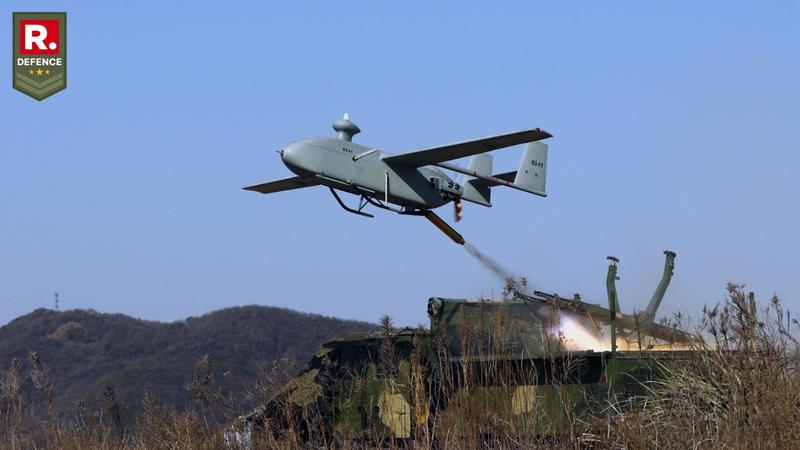Published 13:39 IST, December 30th 2024
Covert Arms Scandal: China’s COVID-19 Aid Cover Exposed as Drone Deal with Libya
As investigations continue, the scandal underscores the urgent need for international institutions to improve transparency and accountability.

Montreal, Canada – A controversial scheme involving China’s covert plan to supply military drones to Libya, under the pretence of COVID-19 aid, has sparked an international scandal. The operation, which allegedly sought to circumvent a United Nations arms embargo, has brought to light a complex web of shell companies and purported collusion with corrupt officials at the International Civil Aviation Organization (ICAO), a UN agency headquartered in Montreal.
Reports by The Telegraph reveal that on December 26, 2024, China intended to deliver 92 armed drones valued at $1 billion to Libya. Marketed as part of humanitarian aid during the COVID-19 pandemic, the drones were allegedly exchanged for discounted crude oil, effectively making them part of a broader strategy to secure energy resources and political influence in Libya, a nation mired in civil conflict.
The investigation, spearheaded by Canadian authorities, uncovered a trail of emails from 2018 to 2021 implicating three ICAO officials in facilitating the deal. These communications detailed the use of a network of shell companies registered in the UK, Egypt, and Tunisia to conceal the transactions. The primary entity, Shanghai Gold Wing Aviation Technology, was ostensibly a UK-based firm but displayed minimal business activity. Its address was linked to numerous companies with ties to Chinese interests.
State Approval and UN Sanctions Violations
According to Defence News, investigators suggest that the Chinese government tacitly endorsed the scheme, aiming to obscure its direct involvement in arms transactions that violated UN sanctions. An unnamed source close to the investigation remarked, “This is not a rogue operation—it appears to be part of a calculated effort by China to bypass international laws while advancing its geopolitical interests.”

The drones were reportedly destined for Khalifa Haftar, a Libyan warlord with backing from Russia. Haftar’s forces have increasingly relied on advanced drone technology in their conflict against the UN-recognized Government of National Accord. Experts warn that bolstering Haftar’s arsenal could further destabilize the region, intensify the ongoing civil war, and derail efforts to achieve peace.
Two Libyan nationals, Fathi Ben Ahmed Mhaouek and Mahmud Mohamed Elsuwaye Sayeh, were charged with conspiracy in connection with the drone deal. Mhaouek has been arrested in Canada, while Sayeh remains at large, with an Interpol red notice issued for his apprehension.
The ICAO’s alleged involvement has cast a shadow over the organization’s integrity. The UN agency has faced criticism for failing to detect corruption within its ranks, prompting calls for a thorough overhaul of its oversight mechanisms.
Regional and Global Ramifications
This incident is not an isolated case. Similar schemes involving Chinese drones disguised as non-military equipment have surfaced in Europe. In Italy and Spain, authorities intercepted shipments labelled as wind turbine components but containing military-grade drones destined for Libya.
Experts fear that such covert arms deals could normalize corrupt practices among authoritarian regimes. Alia Brahimi, a senior fellow at the Atlantic Council, warned, “These actions set a dangerous precedent where national resources are traded at steep discounts for weapons that could be used against civilian populations.”
China’s Expanding Footprint in Africa
China’s growing military influence in Africa is a cause for concern. Critics argue that these covert operations reflect Beijing’s broader ambitions to establish strategic footholds across the continent by exploiting political instability and economic vulnerabilities.

The revelations have spurred calls for stringent measures to prevent future violations of UN sanctions. Human rights advocates and international watchdogs are urging the global community to hold China accountable for its actions and strengthen mechanisms to track arms trafficking.
“This isn’t just about Libya; it’s a test of the international community’s resolve to uphold the rule of law,” said a senior UN official familiar with the case. “Failing to act now would embolden others to bypass sanctions and undermine global security.”
Ethical Implications and a Call for Oversight
As investigations continue, the scandal underscores the urgent need for international institutions to improve transparency and accountability. The ethical implications of using humanitarian crises as cover for military transactions cannot be overstated.
The world watches closely as the fallout from this revelation unfolds. With Libya already grappling with instability, the covert arms deal threatens to exacerbate tensions, posing significant challenges to international peacekeeping efforts and the credibility of global governance structures.
Updated 13:39 IST, December 30th 2024




